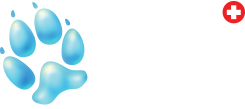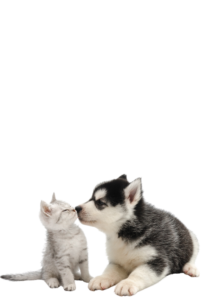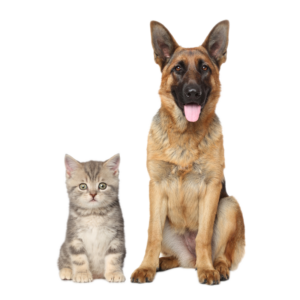Obesity is one of the most prevalent problems our pets have. In fact, 50% of pets are overweight. This extra weight can lead to problems or diseases, such as arthritis, respiratory issues, diabetes, etc. The best way to help prevent or reverse this extra weight, is diet and exercise. We carry a variety of veterinary exclusive foods (as well as customized sizes) that we can recommend to help your pet on their weight loss journey.
When is a dog considered to be overweight?
There are certain things to look for when a dog is overweight. Like humans, it is not always just about the number on the scale, as much as it is about their physical appearance. We look at things like, are their ribs easily felt? Do they have a tucked abdomen? And how does the waistline appear from above? We offer free weight consultations with our technicians, they will be able to assess your dog’s body condition score and also help teach you these very important things when looking for obesity in your dog.
Are some breeds prone to obesity?
While some breeds are certainly more prone to obesity, it does not mean they are destined to be overweight. Many reasons for certain breeds to be overweight is due to what owners may think is normal for that breed and don’t even realize their dog is actually just overweight. Due to the image society has placed on certain breeds, many breeds when at their optimal weight are viewed by others to be underweight. It is important to learn from your veterinary team what to look for when considering your dog’s optimal weight and condition.
What are some long term effects of obesity in pets?
Like humans, obesity can lead to major health concerns in your dog. Obesity can make your dog prone to heart disease, diabetes, arthritis, liver issues and respiratory conditions. Treatment of these diseases can be quite costly, however, many of these diseases can be avoided through proper management of diet and weight control.
Why should you have weight loss & management consultation at our clinic?
It is important to speak to one of our trained technicians to offer the proper tools and guidance when considering a weight loss program. It is important to know and understand the proper things to look for when having your dog lose weight. Because dogs vary in sizes, losing one pound on a chihuahua is much different than losing one pound on a St. Bernard and for this reason, weight loss should be monitored closely by our technicians to ensure your dog isn’t losing weight too rapidly. We always recommend coming in for monthly weight checks to monitor the amount of weight loss your dog is experiencing. With close monitoring, our technicians can tweak your dog’s diet program to your dog’s specific needs. They can also recommend diets that will best suit your dog if they happen to have any other health conditions.




